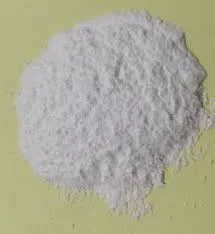- Afrikaans
- Albanian
- Amharic
- Arabic
- Armenian
- Azerbaijani
- Basque
- Belarusian
- Bengali
- Bosnian
- Bulgarian
- Catalan
- Cebuano
- Corsican
- Croatian
- Czech
- Danish
- Dutch
- English
- Esperanto
- Estonian
- Finnish
- French
- Frisian
- Galician
- Georgian
- German
- Greek
- Gujarati
- Haitian Creole
- hausa
- hawaiian
- Hebrew
- Hindi
- Miao
- Hungarian
- Icelandic
- igbo
- Indonesian
- irish
- Italian
- Japanese
- Javanese
- Kannada
- kazakh
- Khmer
- Rwandese
- Korean
- Kurdish
- Kyrgyz
- Lao
- Latin
- Latvian
- Lithuanian
- Luxembourgish
- Macedonian
- Malgashi
- Malay
- Malayalam
- Maltese
- Maori
- Marathi
- Mongolian
- Myanmar
- Nepali
- Norwegian
- Norwegian
- Occitan
- Pashto
- Persian
- Polish
- Portuguese
- Punjabi
- Romanian
- Russian
- Samoan
- Scottish Gaelic
- Serbian
- Sesotho
- Shona
- Sindhi
- Sinhala
- Slovak
- Slovenian
- Somali
- Spanish
- Sundanese
- Swahili
- Swedish
- Tagalog
- Tajik
- Tamil
- Tatar
- Telugu
- Thai
- Turkish
- Turkmen
- Ukrainian
- Urdu
- Uighur
- Uzbek
- Vietnamese
- Welsh
- Bantu
- Yiddish
- Yoruba
- Zulu
Novemba . 09, 2024 09:46 Back to list
Cefquinome Sulphate Injection's Role in Treating Bacterial Infections and Ensuring Animal Health
Cefquinome Sulphate Injection An Overview
Cefquinome sulphate is a broad-spectrum cephalosporin antibiotic primarily utilized in veterinary medicine for the treatment and prevention of bacterial infections in livestock. As an injectable formulation, it is designed to effectively combat various pathogens responsible for infectious diseases in animals. This article aims to provide an overview of cefquinome sulphate injection, discussing its pharmacological properties, clinical applications, and safety considerations.
Pharmacological Properties
Cefquinome belongs to the fourth generation of cephalosporins, which are characterized by their enhanced antibacterial spectrum compared to earlier generations. It exhibits potent activity against both Gram-positive and Gram-negative bacteria, making it an essential choice in treating a variety of infections in farm animals, including cattle, pigs, and poultry. Its mechanism of action involves inhibiting bacterial cell wall synthesis, ultimately leading to cell lysis and death.
The pharmacokinetics of cefquinome sulphate reveal that it is rapidly absorbed after injection, achieving peak plasma concentrations that are conducive to its antibacterial effect. The drug demonstrates excellent tissue penetration, meaning it can effectively reach infection sites in various tissues. This is particularly important in veterinary medicine, where the systemic treatment of infections is often necessary for the recovery of livestock.
Clinical Applications
Cefquinome sulphate injection is widely used to treat several bacterial infections in cattle and pigs
. Common clinical conditions treated with cefquinome include1. Bacterial Pneumonia This is a frequent ailment in livestock, especially in young animals. Cefquinome provides effective treatment against the pathogens responsible for pneumonia, thereby reducing mortality rates and improving overall animal health.
cefquinome sulphate injection

2. Metritis In post-partum cattle, metritis is a common infection that can lead to severe complications. Administration of cefquinome can help mitigate the effects of this infection and promote faster recovery.
3. Mastitis For dairy cows, mastitis can be a significant issue, affecting milk production and animal welfare. Cefquinome's efficacy against the pathogens involved in mastitis makes it a valuable tool in maintaining dairy herd health.
4. Skin and Soft Tissue Infections In both beef and dairy cattle, injuries and subsequent infections can occur. Cefquinome can be used to treat these infections effectively, helping to prevent more serious complications.
Safety Considerations
While cefquinome sulphate is generally well-tolerated, there are important safety considerations to keep in mind. Like all antibiotics, there is a risk of allergic reactions in sensitive animals. Therefore, careful consideration should be given to relevant medical histories before administration. Additionally, misuse or overuse of antibiotics can contribute to the development of antibiotic-resistant bacteria, making prudent use essential.
Withdrawal periods are another crucial aspect of using cefquinome. It is important to adhere to the established withdrawal times before animals are sent to market or their products, such as milk, are harvested. This ensures that any potential antibiotic residues are below the maximum residue limits set by regulatory authorities, safeguarding consumer health and meeting market requirements.
Conclusion
Cefquinome sulphate injection is a significant advancement in veterinary medicine, offering effective treatment for various bacterial infections in livestock. Its broad-spectrum activity and favorable pharmacokinetics make it an essential resource for veterinarians aiming to ensure the health and productivity of farm animals. However, its use must be accompanied by careful consideration of safety and antibiotic stewardship to mitigate the risks associated with antibiotic resistance. By responsibly using cefquinome and adhering to recommended guidelines, livestock producers can help maintain the efficacy of this valuable therapeutic agent while ensuring the health and welfare of their animals.
-
Guide to Oxytetracycline Injection
NewsMar.27,2025
-
Guide to Colistin Sulphate
NewsMar.27,2025
-
Gentamicin Sulfate: Uses, Price, And Key Information
NewsMar.27,2025
-
Enrofloxacin Injection: Uses, Price, And Supplier Information
NewsMar.27,2025
-
Dexamethasone Sodium Phosphate Injection: Uses, Price, And Key Information
NewsMar.27,2025
-
Albendazole Tablet: Uses, Dosage, Cost, And Key Information
NewsMar.27,2025













